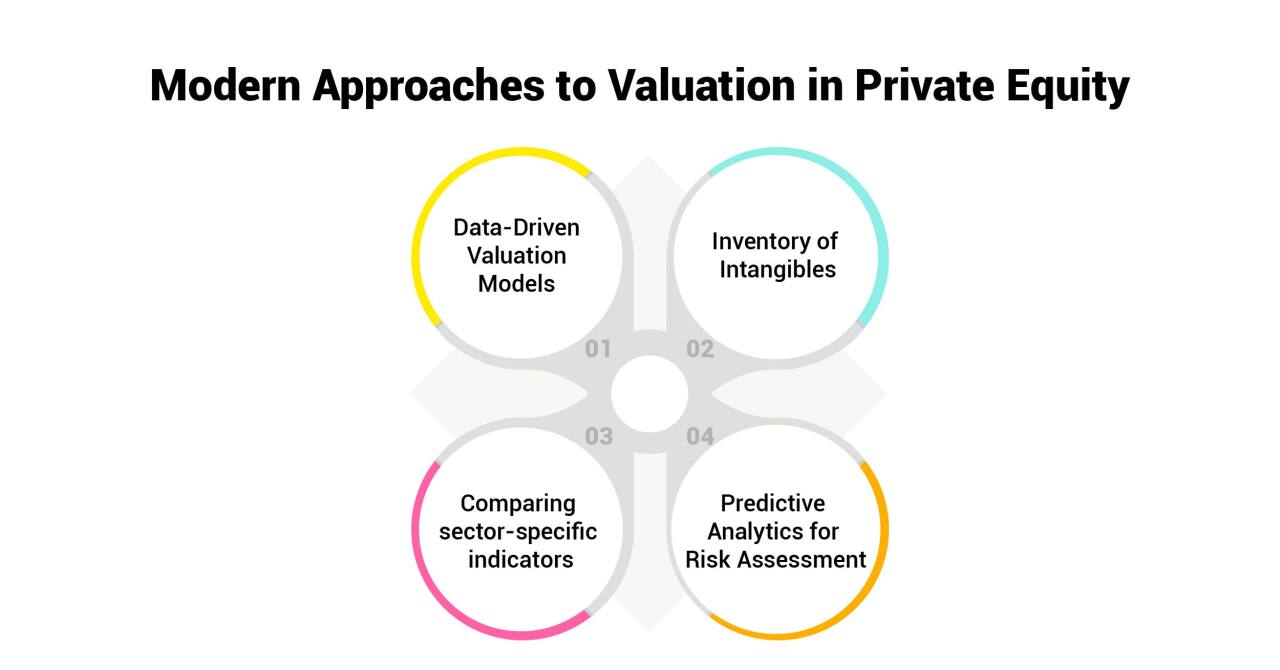Introduction
The private markets are undergoing a significant transformation, driven by new forces that are reshaping value creation strategies. Change is continuous in the business environment: traditional strategies are giving way to new ones, emphasizing long-term perspectives and the use of technologies. It is, therefore, vital to grasp these shifts to effectively survive and thrive in the world of private equity, where private equity value creation is not just monetary returns but also creating value through change.
The Evolution of Value Creation in Private Markets
The concept of value creation in private markets has evolved over two decades. In the past, private equity firms depended on financial engineering, namely, on assets, costs, and capital structures, to achieve superior returns. However, competition and investors’ expectations have risen, and now, their primary concerns are operations, digitalization, and long-term growth.
The significant changes in the value creation strategies are as follows:
-
From cost-cutting to operational excellence: Instead of decreasing expenses in the short term, firms today pursue overall improvements through supply chain management, process integration, and data interpretation. Managing costs and minimizing resources are crucial to implementing and attaining superior portfolio performance.
-
Sustainability and ESG Integration: There is growing evidence that investors push for sustainable business strategies. Firms that pay attention to ESG issues generate more sustainable value for their shareholders because they avoid potential threats to their business and can rely on stakeholder support.
-
Technology as a Growth Enabler: Today's digital disruption, robotics, and business intelligence provide the impetus for growth. Technology has been shown to significantly enhance the firm’s price management, improve efficiency, and open new revenue sources, making it a standout component of value-generation approaches.
Emerging Forces Reshaping Value Creation in Private Markets
Proactive strategies used by private market firms have evolved beyond traditional financial engineering to seek other advanced private equity value-creation methods. These methods benefit the net asset value per share and favor the long-term market and investors.
Emerging drivers include:
-
Technology Integration: Increased use of ‘big data’ analytics and the introduction of artificial intelligence and automation of various processes. Several organizations that adopt these technologies make better decisions, cut costs, and experience increased revenues.
-
Sustainable management and compliance: ESG compliance has become necessary. It is a key value driver, and it lack affects investors’ trust. Companies focusing on sustainability have been observed to provide better long-term returns and less risk from laws.
-
Human Capital and Leadership Transformation: Management is critical for actualizing value-creation strategies. Investment firms currently recognize leadership enhancement, workforce management, and talent management as essential factors that can foster performance.
-
Diversification of Revenue Sources: Venturing into new sectors, adding new products and services, and adopting loose operations models help reduce risks and stabilize in difficult economic times.
Since advanced techniques for valuing private firms are emerging in private equity, incorporating these drivers will become mandatory to capture fresh opportunities and sustain competition. People who can relocate for these shifts will generate sustainable long-term worth.
Modern Approaches to Valuation in Private Equity
Private equity investment has shifted beyond relying solely on earnings multiples and EBITDA as measures of value. Modern businesses use sophisticated financial models to establish the accurate value of assets. Since the complexity of markets has increased, investors no longer look at past data as a way to predict future results. Applying other data sources, analytical scores, and specific industry benchmarks to an asset adds more depth and versatility to an analysis.
Key modern valuation approaches include:

-
Data-Driven Valuation Models: Technologic and proactive means, such as analytics and forecasting, evaluate the growth prospect more precisely. These models consider changing market trends, customers' feelings about the products, and operational efficiency.
-
Inventory of Intangibles: Liquidity or market-based stock assessment methods fail to include assets such as images, patents, and unique technology. The current approaches enable the inclusion of these other assets based on their role in enhancing long-term profits.
-
Comparing sector-specific indicators: Although private firms are indeed less liquid than public ones, benchmarking allows investors to assess their competitiveness. Utilizing information such as revenue growth trends and standard industry share prices helps enhance investment portfolios.
-
Predictive Analytics for Risk Assessment: This includes evaluating future performance and credit risks based on the available ‘big data,’ macroeconomic matters, regulatory issues, and firm positioning. It is indicated that this approach will shed more light on a risk-adjusted return analysis to promote the sustainability of investments.
The Influence of Global Market Trends on Value Creation Strategies
Market trends worldwide have also influenced private equity value-creation ventures. Declining market conditions, changes in investor focus, and new business models put pressure on companies to adapt constantly. The risk landscape now involves whether private investors can adjust their methodologies and valuations to match current financial and operational trends in the global marketplace.
The following factors affect valuation techniques used in private equity:
-
Macroeconomic Environment: These include inflation rates, changing interest rates, and geopolitical risks that affect capital costs and investment opportunities. Higher borrowing costs are other factors that limit the use of leverage to create value, forcing firms to focus on operational restructuring.
-
Investor Sentiment Changes: Limited partners are focused more on getting steady and sustainable returns and thus want fund managers to integrate ESG factors. It has been found that companies that focus on long-term value generation have a relative advantage.
-
Digital First Business Models: Advanced technologies such as automation, artificial intelligence, and data analytics display better performance, attracting private equity investors to the technology-first companies.
Case Study Snapshots: Success Stories in Private Market Value Creation
Private market investors are adopting new approaches to enhancing private equity value more than ever before. Companies that integrate technology, sustainability, and strategic leadership transformation are setting new benchmarks for growth. The models below show how firms have unlocked new modes of value creation:
-
Digital Transformation for Operational Efficiency
BMC Software, an IT management solutions vendor, experienced slow growth and reduced profitability 2013. In 2011, the private equity firms Bain Capital and Golden Gate Capital took BMC’s company and determined the changes in the areas of operations that can be viewed as problematic, namely product development, sales, and customer service. These changes also helped BMC improve its operational efficiency and deliver a fresher brand image to its customers.
-
Scaling Through ESG Initiatives: Kandeo
Kandeo is an asset management company that operates in the private equity and private debt segments in Latin America and created a framework to integrate ESG factors into the investment process. Besides achieving better environmental and social impacts in the companies it supported, Kandeo was also able to increase both financial and non-financial value in the portfolio companies.
Conclusion
The future of private equity value creation hinges on adaptability, strategic foresight, and innovation. To stay relevant, a venture must harness technology, solve social issues, incorporate ESG factors, and enhance the valuation methodology regarding private equity. Substantial value creation through superior strategic planning will replace short-term financial management and tactics. Private markets shall also be driven by technology, leadership, and diversified sources of revenues as a new trend to create sustainable values.







